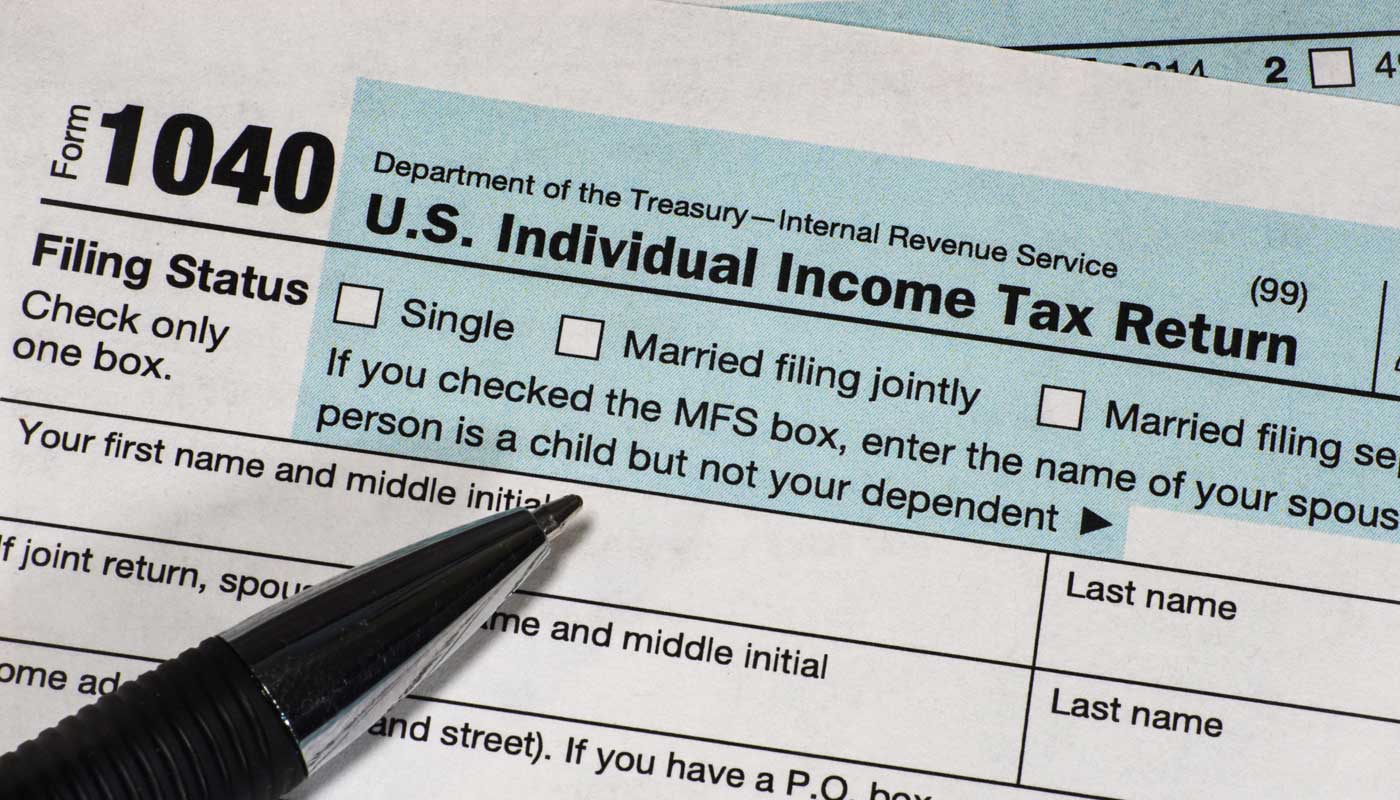
News writer; Opinion columnist
We've all had that dream. The one where we match all six numbers and then nail the red Powerball to take home a nine or even ten-figure jackpot. Or we uncover the perfect combination of numbers and symbols to cash in on a major scratcher prize.
And while you're drinking champagne, calling your travel agent, or considering which sports car you want to buy first, there's one huge question you'll quickly need an answer for that will have a colossal impact on how much money you actually take home: do you want the lump sum payout or the annuity?
Money now vs. money later
An annuity is a series of payments you receive for a set period of time. In the case of the lottery, annuities usually pay out over the course of 30 years, and the payments grow by 5% a year. With the annuity option, you'll receive the total amount of your jackpot.
If you select the lump sum payout instead, you'll receive just one check that covers all of your winnings. However, this check will be for less than the total value of your prize. With an annuity, if your jackpot is $50 million, you'll receive that full amount (minus taxes) over time.
But if you select the lump sum payment, you'll receive somewhere between 40-50% of the total prize, so that $50 million would go down to $20-25 million when you receive your check.
On the surface, that might make the annuity seem like the obvious choice because $50 million is obviously greater than $25 million. However, there are several other factors to consider that could significantly impact how much money your prize is worth.
You can use our annuity calculator to determine your payment size and schedule if you won the current Powerball jackpot.
Return on investment
One of the biggest advantages to taking the lump sum payment is that you can start making your money work for you. That typically means making investments in things like stock, bonds, real estate, and other assets that gain value over time. So if you opt for the lump sum and receive $25 million, you could immediately begin investing, and if you were to earn just a 5% annual return on that money (and let's be clear, returns are never guaranteed), you would make $1.25 million your first year, and you would still have your original $25 million.
You can still invest your annual payout with the annuity, but your gains will be lower because you start with a lower initial number. A 5% return on a first annuity payment of $1.5 million would net you just $75,000 in your first year.
Of course, as you receive more annuity payments, your return would grow, but it would never be as much as the amount earned from a larger sum invested earlier.
The vast majority of winners take the lump sum payout because if properly managed and invested, it's possible to earn more money than they would have received from the annuity.
Payout value
If you select the installment option, the lottery will purchase a 30-year annuity on your behalf. If you select the one-time payment option, the value of that payment is determined by what it would cost to buy the annuity.
So, while the value of the installment option is fixed, the value of an annuity can actually fluctuate based on the current interest rate. When you buy an annuity, you make one large upfront payment and then receive a guaranteed income stream for several years afterward.
When interest rates are higher, annuities are cheaper to purchase because it's easier for the company selling the annuity to make money from your upfront payment by investing in low-risk securities such as bonds. When interest rates are low, annuities are more expensive because the company will make less money from your payment.
This means it is better to take the payout option when interest rates are low because the cost of your annuity will be higher, which means your one-time payout will be higher.
Manage your money
One of the first things you'd probably do if you won a giant payout is quit your job. However, what many people don't appreciate is that managing a massive sum of money quickly becomes its own job.
That's why Andrew Stoltman, a lawyer based in Chicago, thinks that it's usually better to take the annuity. In an interview with CNBC, he said:
Virtually everybody who wins the lottery picks the lump sum distribution, and I think that's a mistake.
He believes the annuity is usually the right choice because “the typical lottery winner doesn't have the infrastructure in place to manage such a large sum so quickly.”
Stoltman makes a valid point. Managing large sums of money requires far more than just opening a savings account. In fact, because bank deposits are only protected up to $250,000, it wouldn't be a wise decision to place millions of dollars into a bank.
Handling a multi-million dollar fortune usually requires a team of people to help. That means you'll likely need financial advisors, accountants, money managers, lawyers, and other financial professionals. Many people with wealth in the hundreds of millions will establish family offices, which are small businesses whose entire purpose is to manage one person's or family's wealth.
If you don't already have a team like this ready to go, building one with people you trust can take time.
When Edwin Castro won $2 billion in the November 2023 Powerball drawing, he was fortunate that his brother was a banker who could help guide him to the right people to manage his money. But not everyone has those types of connections to call on.
John P. Schultz, a partner at accounting firm Genske, Mulder & Company, told AARP magazine:
As a very famous rapper once said, “Mo money, mo problems.” This could not be more true in the case of lottery winnings, as the wealth — and management of that wealth — has not grown slowly so that someone can learn and grow with it.
That's why, for some people, an annuity might be a better option. Because you're initially dealing with smaller sums of money, it gives you time to learn how to actually manage your wealth, and any mistakes you make will be smaller since you're dealing with only a fraction of your fortune.
James Hines, the Richard A. Musgrave Collegiate Professor of Economics at the University of Michigan in Ann Arbor, told the Detroit Free Press that receiving money over a more extended period of time will give you time to build the right group of people to handle your wealth:
Annuitizing the payments will not address all of the issues, but at least it affords the winner the chance to learn over time who to trust and how to manage the newfound affluence.
Inflation
While it is true that you'll receive the full amount of your jackpot if you choose the annuity, you won't receive its total value, at least for the year you won it.
Because of inflation, money loses value over time. A dollar from twenty-five years ago has almost twice as much buying power as a dollar does today. In other words, an item that cost just $1 in the year 2000 would cost you almost $2 today.
The value of the money you receive upfront will be greater than the value of the same amount of money you receive over the course of decades with an annuity.
You can use this inflation calculator from the U.S. Bureau of Labor Statistics to see how the value of money changes over time.
Variables
In addition to the big considerations discussed above, there are also several more minor issues to keep in mind when deciding between an annuity or an upfront payout.
If you're 20, a steady stream of income from a 30-year annuity might make sense for your life plan.
However, if you win the lottery when you're 75, you might not have 30 years left to collect all of your money, and if you do, you might be too old to enjoy it.
And while you can pass on your payments to your heirs, they will be immediately taxed on the remaining payout amount even before they receive all of the checks.
Taxes are another consideration. Because you're taxed on money as you receive it, you'll have to pay all your taxes upfront if you take the lump sum payout. With an annuity, each check you receive is taxed in the year you receive it, and those taxes can go up or down from year to year.
James Hines, the Richard A. Musgrave Collegiate Professor of Economics at the University of Michigan in Ann Arbor, believes that it makes more sense to take the annuity for tax purposes. He told the Detroit Free Press:
From a tax standpoint, it usually makes sense to spread out your lottery receipts and avoid taking the lump sum payout.
A lump sum payout will definitely push you into the highest tax bracket, and depending on the size of your annuity checks, you could pay less in taxes over time.
However, with a lump sum, you'll have the certainty of knowing how much you owe in taxes, while the tax code can change over time, and you may owe more or less with an annuity.
Finally, ask yourself how responsible you are with money. If you make a mistake with one of your annuity checks, you'll have more to look forward to unless it was your last one. But if you blow your lump sum payout, you'll never receive another penny to replenish your fortune.
The Verdict
Everyone's life circumstances are different, and you should always consult with a professional financial advisor or accountant before making any significant financial decision. So, there isn't necessarily one correct answer to the annuity vs lump sum payout question.
It's also wise to remember that most lotteries give you 180 days from the time of the drawing to claim your prize, so you don't need to rush your decision.
All that said, we'd generally advise taking the lump sum payout for two crucial reasons.
- If you're confident that you can invest your money wisely, you'll get a larger return on your investment if you start investing with a higher amount. Compound interest and long-term investing are two powerful and proven ways to generate significant cash flow. If you're interested in turning your good fortune into generational wealth, this is one of the best ways to do it.
- One of the appeals of the annuity is that you receive your entire jackpot, not just a percentage of it. However, inflation will diminish the actual buying power of your money over time, so the gap between what you receive upfront and what you receive over time isn't as large as it initially appears.
Consider that one million dollars in 2000 has the same buying power as $1.8 million in 2023.
However, while these are sound reasons, it doesn't mean that the lump sum is always the right choice for everyone.
If you prefer a 30-year guaranteed income stream with a lower tax burden, then an annuity could be a good choice. Annuities are also a good option if you're intimidated by or don't feel ready to assemble a team of financial advisors to help manage your fortune.
Ultimately, the best option comes down to understanding your money and yourself. If you want to maximize your wealth and aren't intimidated by large-scale investing, go for the lump sum.
But if you don't trust yourself not to blow all your money at once or don't feel comfortable handling such large sums, then choosing the annuity is probably the right choice.
In an interview with FOX Business, Emily Irwin, senior director of advice for Wells Fargo, offered her thoughts on the decision:
If you would prefer the comfort of knowing you have money for the next several decades, consider the annuity payment; if you know you will make and keep to a budget and would prefer to have more control of your winnings, then the lump sum might be the best option for you.




















Comments